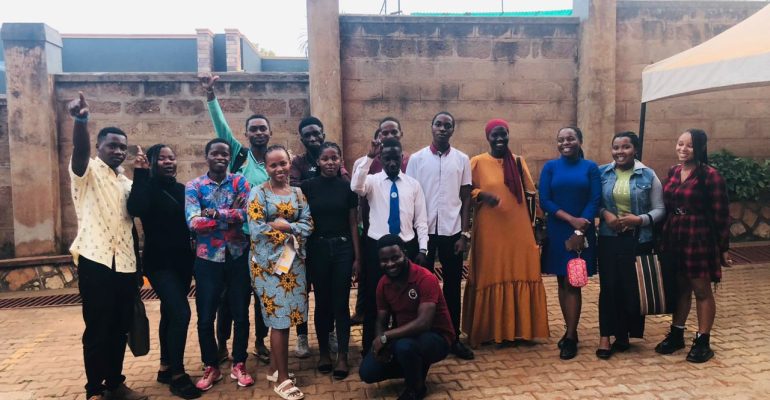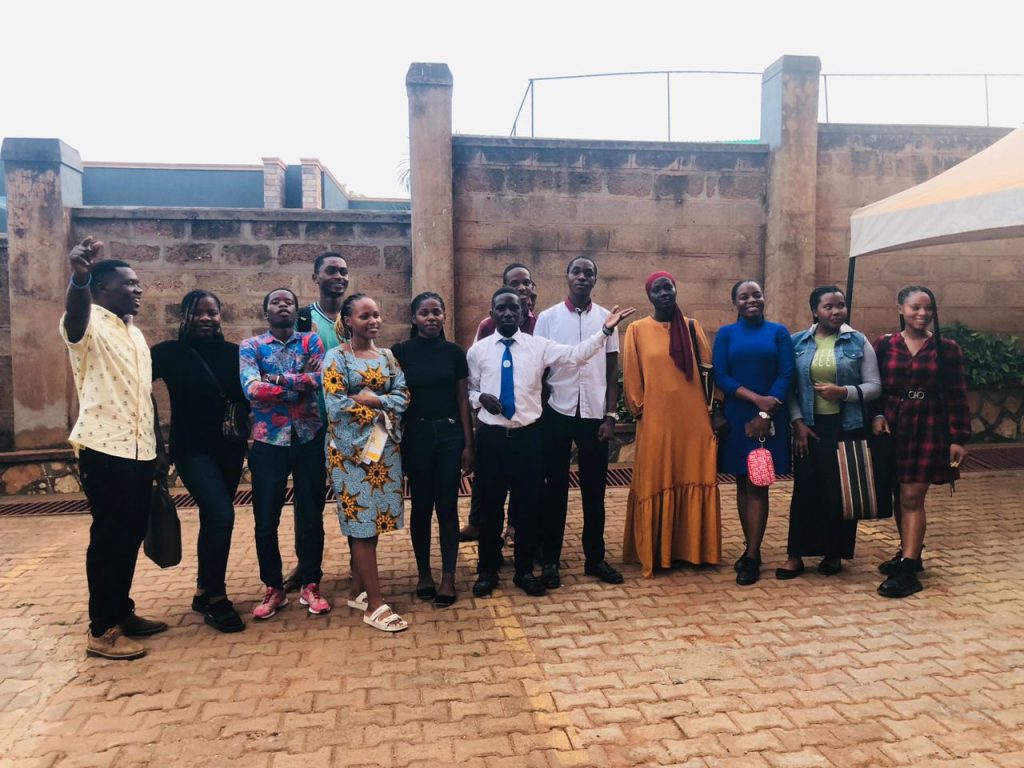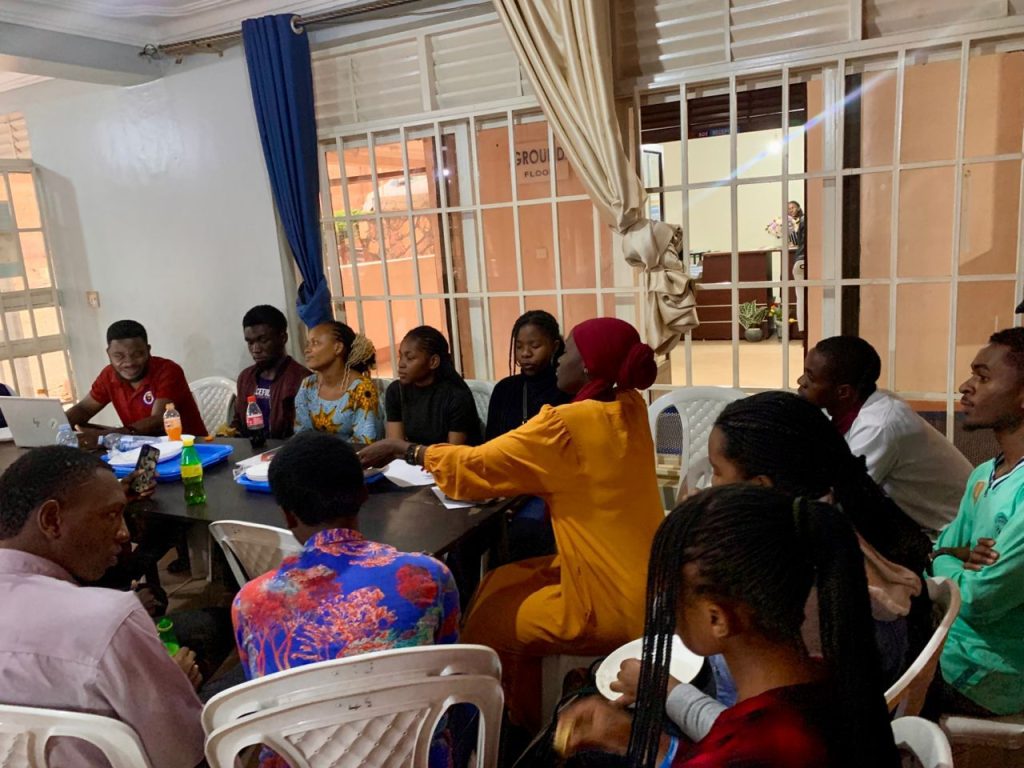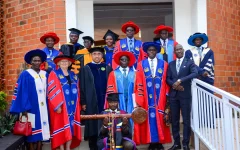Understanding Leadership Styles: Insights from the Africa Youth Leadership Forum
October 15, 2024 2024-10-17 8:53Understanding Leadership Styles: Insights from the Africa Youth Leadership Forum

Understanding Leadership Styles: Insights from the Africa Youth Leadership Forum
At the Africa Youth Leadership Forum at Bugema University Kampala Campus, we recently held a vibrant discussion on a crucial topic for every aspiring leader: Leadership Styles. This session, was facilitated by the insightful Mrs. Faith Adiri. Her extensive experience guided us through various leadership approaches, helping us better understand how to lead effectively in different situations.
Bugema University is a leading Christian institution dedicated to providing quality education that equips students with knowledge, skills, and the moral grounding necessary for success in their personal and professional lives. Located in Kampala, Uganda, Bugema University fosters an environment of academic excellence, innovation, and community service. The university offers a range of undergraduate and postgraduate programs, including in the fields of Software Engineering, Business, Education, and Health Sciences.
The university is not just a place for academic growth; it’s also a hub for personal and leadership development. Through clubs like the Africa Youth Leadership Forum, students are given the opportunity to develop essential leadership skills that will help them thrive in an increasingly complex and interconnected world.
Why Leadership Styles Matter
Leadership is an essential skill that goes beyond simply managing a team. It’s about inspiring others, guiding them through challenges, and making decisions that impact the success of the team and the community. Understanding different leadership styles is key for anyone who wants to be an effective leader, especially in today’s diverse and dynamic environments.
During our forum, we explored several leadership styles, each with its own strengths and challenges. Mrs. Faith Adiri led a thought-provoking session where we discussed how these styles can be applied in real-life scenarios, offering us tools to be adaptable and effective leaders.

Key Leadership Styles Discussed
- Autocratic Leadership
This style is marked by a leader who makes decisions unilaterally, with minimal input from the team. It’s often necessary in high-pressure situations where quick decisions are needed, but it can limit creativity and engagement. - Democratic Leadership
Often referred to as participative leadership, this style encourages collaboration and team involvement in decision-making. It’s ideal for fostering a sense of ownership and commitment among team members, particularly in creative environments. - Laissez-Faire Leadership
In this style, leaders take a hands-off approach, providing minimal direction. It’s well-suited for teams of highly skilled professionals who require little guidance, but it can lead to lack of direction if the team is not self-motivated. - Transformational Leadership
Transformational leaders inspire their teams with a vision for the future, motivating them to go beyond their self-interest for the collective good. This style promotes innovation, fosters growth, and aims to create positive changes in society. - Transactional Leadership
Transactional leadership relies on structured tasks and rewards. Leaders set clear expectations and offer incentives for meeting them. This style works well for achieving short-term goals but may not foster long-term engagement or creative thinking.
A Collaborative Learning Environment
What makes our weekly sessions at the Africa Youth Leadership Forum special is the open, collaborative atmosphere. Chaired by Vannesa Furah, a Software Engineering student at Bugema University, the forum provides an opportunity for every member to contribute. Vannesa’s leadership fosters a dynamic environment where diverse perspectives are valued, and all members are encouraged to actively participate.
At our meetings, we don’t just learn from the facilitators—we also learn from each other’s experiences. The exchange of ideas, challenges, and solutions is what makes each session unique and impactful. We believe that effective leadership is built not only through theory but through practical application and peer interaction.

Takeaways for Aspiring Leaders
For students, particularly those at Bugema University, developing leadership skills is a vital part of preparing for the future. The Africa Youth Leadership Forum provides a platform for students to hone these skills, whether it’s through learning about leadership styles, practicing public speaking, or engaging in meaningful discussions.
As we continue to meet every Tuesday from 5 PM to 6 PM, we welcome all students who are passionate about making a difference to join us. Whether you are a leader in your own right or someone who is eager to learn, our sessions are designed to nurture leadership potential and create a space for personal growth.
At Bugema University, we are not just preparing for academic success; we are shaping the leaders of tomorrow. Join us at the Africa Youth Leadership Forum and take part in discussions that will enhance your leadership skills and set you on a path toward positive change.
Stay tuned for more engaging and informative sessions, and remember, every Tuesday at 5 PM is a chance to learn, grow, and lead the way forward!





